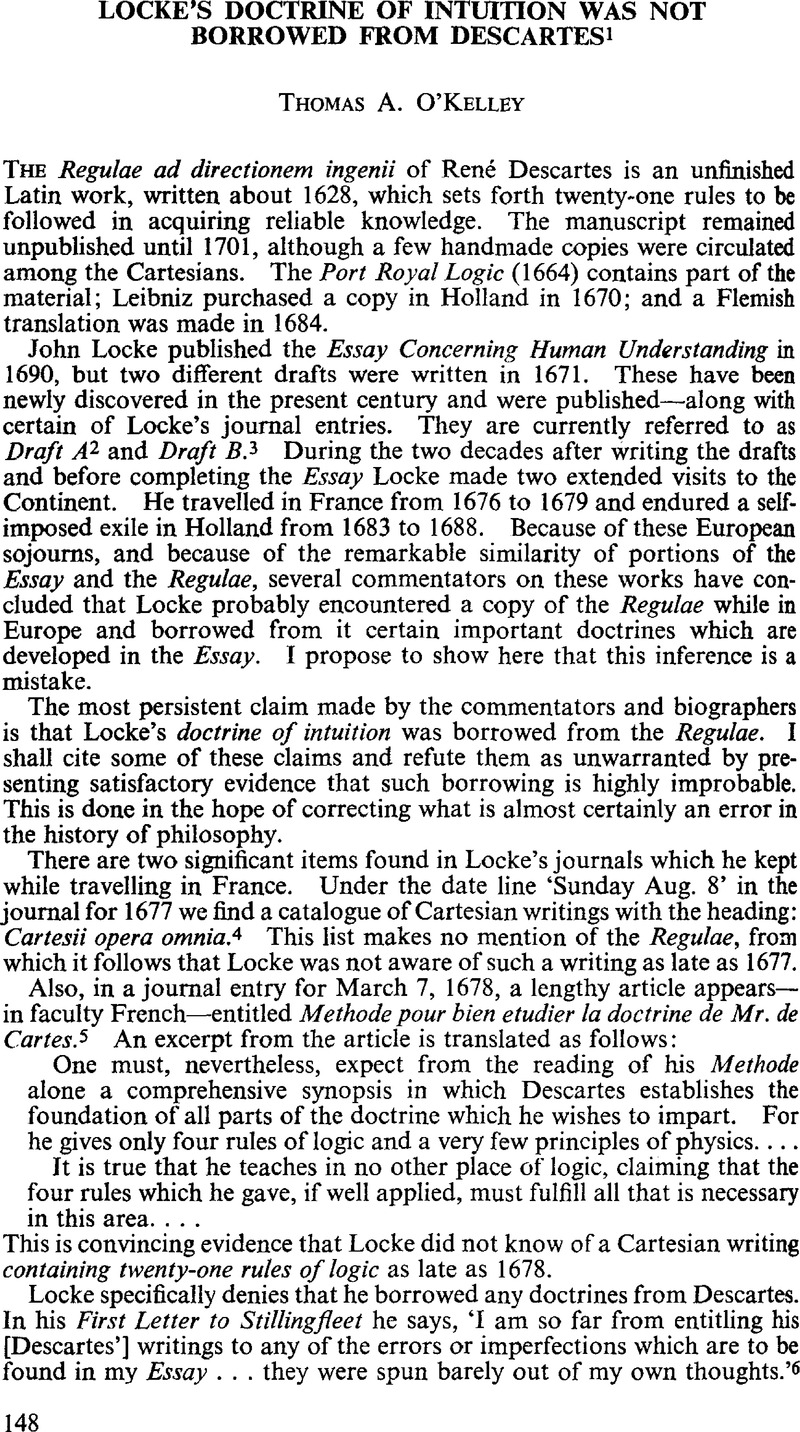Article contents
Locke's Doctrine of Intuition was not Borrowed from Descartes1
Published online by Cambridge University Press: 25 February 2009
Abstract

- Type
- Discussion
- Information
- Copyright
- Copyright © The Royal Institute of Philosophy 1971
References
2 Aaron, Richard I. and Gibb, Jocelyn, An Early Draft of Locke's Essay together with Excerpts from his Journals (Oxford: The Clarendon Press, 1936).Google Scholar
3 Rand, Benjamin, An Essay Concerning the Understanding, Knowledge, Opinion, and Assent, by John Locke (Cambridge, Mass.: Harvard University Press, 1931).Google Scholar
4 Aaron and Gibb, op. cit., p. 91.
5 ibid., pp. 105–11.
6 The Works of John Locke (London: T. Tegg, 1823), IV, pp. 48–49.Google Scholar
7 Aaron, Richard, John Locke (2nd ed., Oxford: The Clarendon Press, 1963), p. 54.Google Scholar
8 Haldane, Elizabeth S., Descartes: His Life and Times (London: John Murray, 1905), p. 135.Google Scholar
9 Gibson, James, Locke's Theory of Knowledge and its Historical Relations (Cambridge: The University Press, 1960), pp. 211–212.Google Scholar
10 Aaron, op. cit., p. 10.
11 Ibid., pp. 220–21.
12 Beck, Leslie J., The Method of Descartes: A Study of the Regulae (Oxford: The Clarendon Press, 1952), p. 67.Google Scholar
13 Ware, Charlotte S., “The Influence of Descartes on John Locke: A Bibliographical Study”, Revue International de Philosophie, XII (1950), p. 219.Google Scholar
14 Cranston, Maurice, John Locke: A Biography (New York: The Macmillan Co., 1957), p. 274.Google Scholar
- 2
- Cited by




